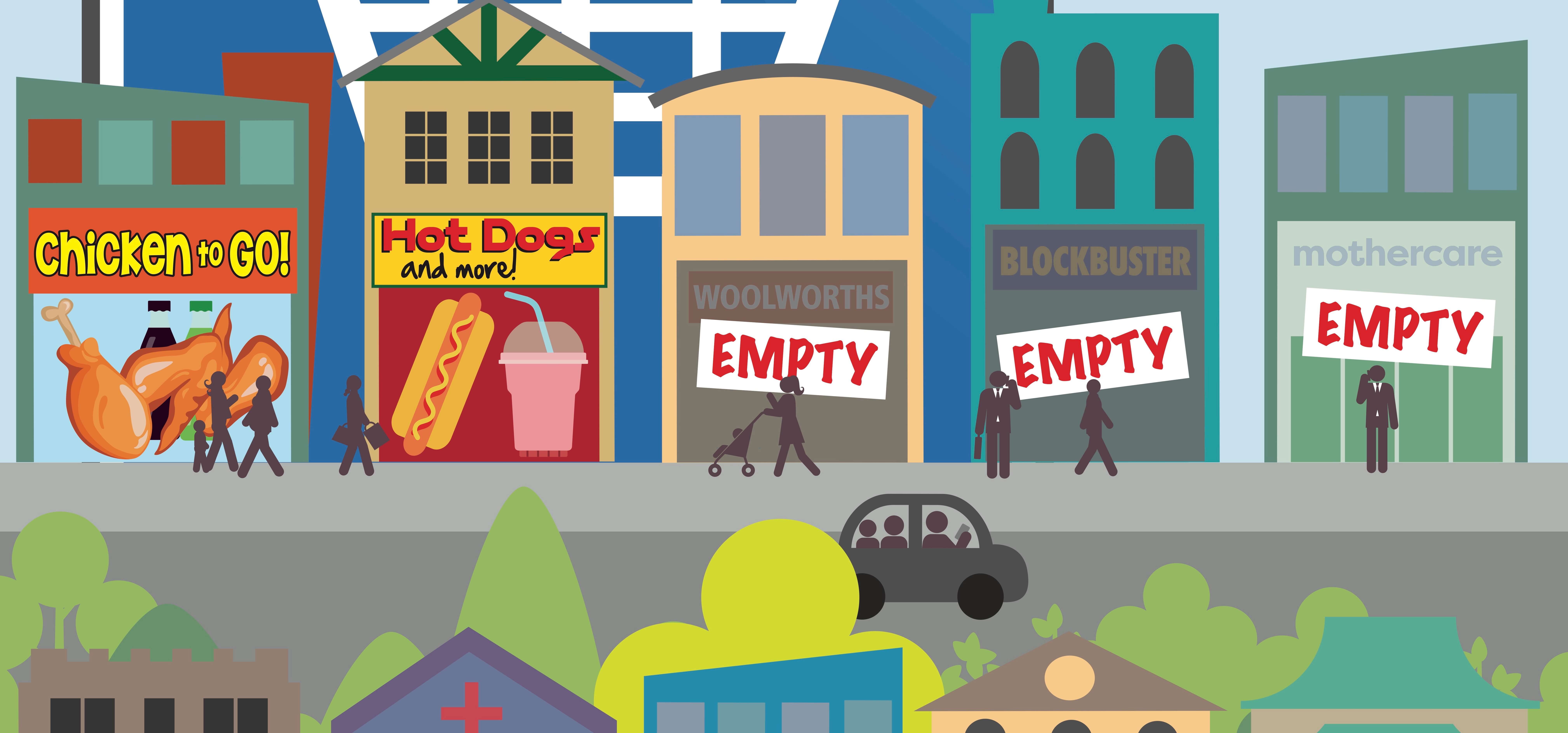The Health of our High Streets
Interested in this topic? Hear more from RSPH Director Shirley Cramer at the annual Wellbeing Symposium April 2019. Visit https://www.thewellbeingsymposium.com/ for more details.
In both obvious and subtle ways, the physical environment that surrounds us affects our health and wellbeing. Our high streets and what exists on them significantly influence our health.
A report published in Autumn 2018, The Health of Our High Streets: Running on Empty, by The Royal Society for Public Health (RSPH), suggests that Britain’s High Streets are becoming unhealthier. The report evidences a study that used a points-based system to assess high streets and how healthy they are (or not!). Positive points were allocated to high streets with assets such as: libraries, dentists, leisure centres and pharmacies. Points were deducted for tanning salons, betting shops, fast-food outlets, payday lenders and off-licenses. The study investigated 70 major UK towns and cities and found that Grimsby, Blackpool and Stoke-On-Trent, include some of the unhealthiest high streets in the UK. Interestingly, in London, the healthiest and unhealthiest high streets are located in the same borough (the London Borough of Haringey), which are only 3.5 miles apart from each other! [1]
The report noted a few key nationwide changes between 2014 – 2017 such as an 8% increase in fast-food outlets and a doubling of vape shops from 1,000 to 2,000 [1]. There is an established association between smoking, diet and physical inactivity and the development of non-communicable diseases (NCD), therefore, the rise in fast-food outlets particularly is likely to be inhibiting positive health related behaviour change.
Despite the unhealthy trends observed in Britain’s high streets, the study provides some interesting recommendations to help remedy its findings. To promote healthy eating, recommendations include: fast-food vendor restrictions near schools; asking food-selling businesses to reduce the calories in their products; and giving local authorities the power to restrict new unhealthy outlets. Broader recommendations include providing incentives for small retailers to stop selling tobacco products, and giving monetary relief to those businesses trying to improve the public’s health.
The study acknowledges that towns and cities must evolve so that it is easier for everybody to make healthy choices regardless of income or ability [1]. This intention is at the heart of C3’s community work. Our CHESS™ community engagement tool assesses the local physical environment and identifies barriers and enablers to good health. Therefore C3’s work is of increasing significance, as our community projects can help reshape the UK’s high streets, and enable people to live healthier, happier lives.
Hear more from RSPH Director Shirley Cramer at the annual Wellbeing Symposium April 2019. Visit https://www.thewellbeingsymposium.com/ for more details.
Read more: Community Engagement in Tower Hamlets
Photo courtesy of RSPH.
[1] – Health on the High Street (2018) RSPH [online] https://www.rsph.org.uk/uploads/assets/uploaded/dbdbb8e5-4375-4143-a3bb7c6455f398de.pdf
[2] – UK’s ‘unhealthiest’ High Streets revealed (2018) BBC [online] https://www.bbc.co.uk/news/health-46059306

